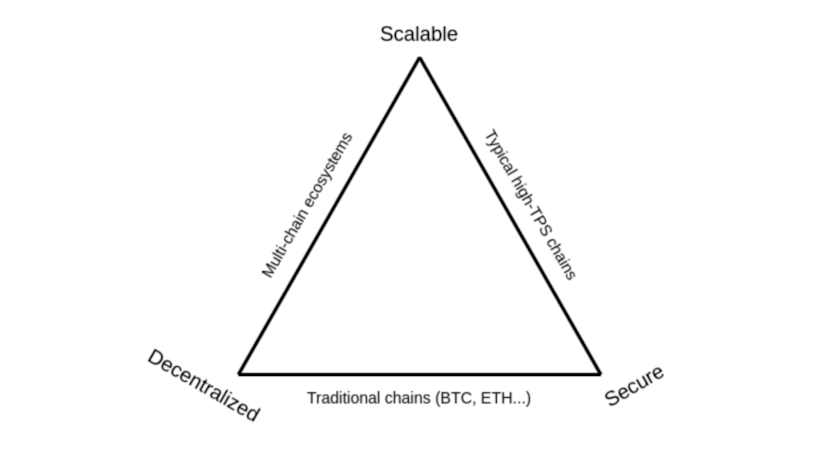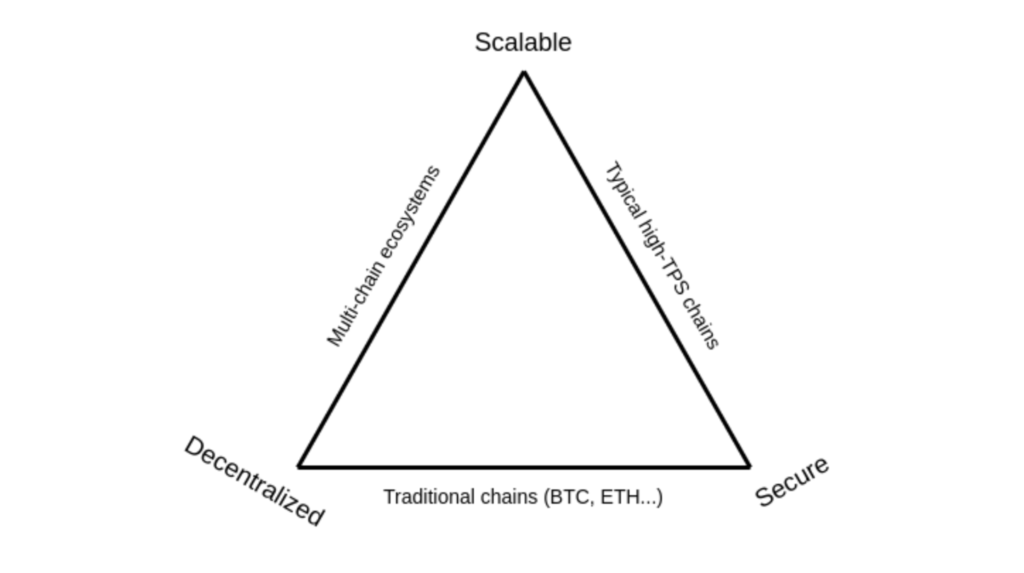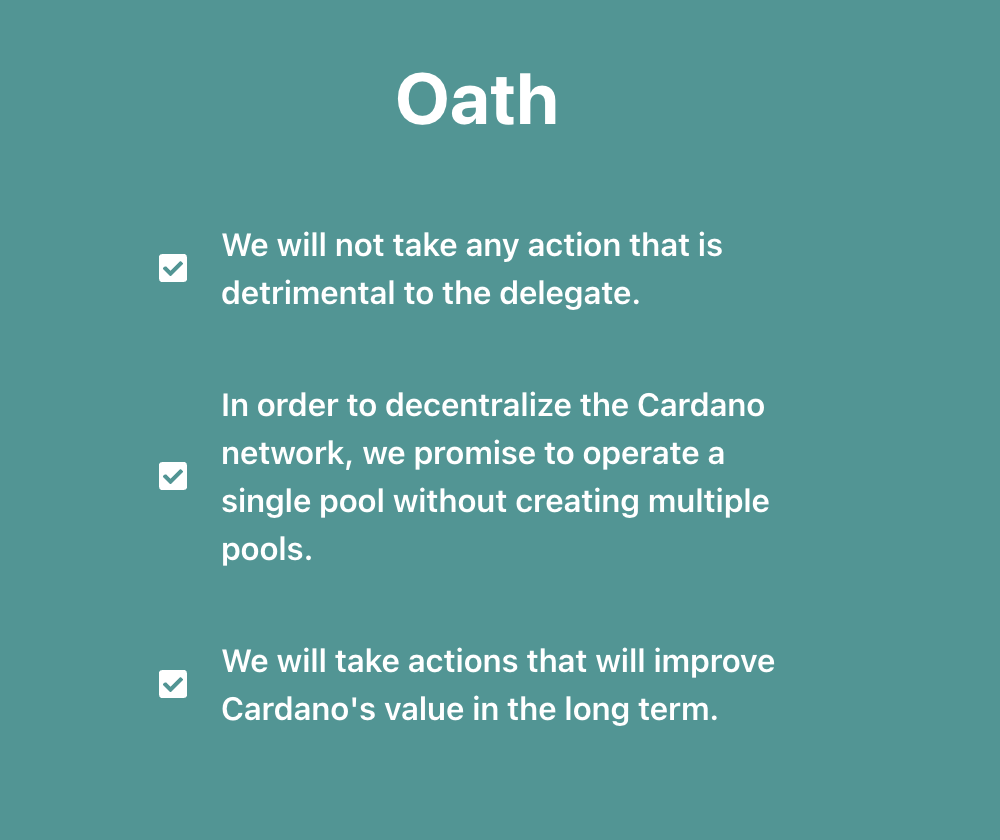
SAKE's current thoughts on "Decentralization"
Contents
This time, I would like to talk about SAKE's current thoughts on "decentralization".
This is not an opinion on other pool operations.
It will only take about 5 minutes, so I hope you enjoy it.
Before I talk about decentralization
Before I talk about decentralization, I'd like to talk about the blockchain trilemma. Vitalik, the founder of Ethereum, said that the three most important elements of a blockchain are scalability, decentralization, and security, and that not all of these can be achieved at the same time.
・Decentralization
The degree to which a chain can exist without relying on the trust or authority of a few.
・Scalability
Processing speed, scalability
・Security
Security under the assumption that an attacker exists Image of the trilemma proposed by Mr. Vitalik
Image of the trilemma proposed by Mr. Vitalik
(出典:https://vitalik.ca/general/2021/04/07/sharding.html)
Let's take a look at how these things are done in the two consensus algorithms (PoW and PoS).
※This is a rule that defines "who creates" the block that stores the transaction data, and recognizes one block created based on that rule as the "correct block". It is the structure that motivates the participants to take action, and is the fundamental concept of the chain.
PoW
Bitcoin, Ethereum, etc...
+ Decentralization
ー Scalability
+ Security
(+ represents emphasis, - represents sacrifice)
→This is a structure that sacrifices scalability for decentralization and security, and aims to solve scalability with Layer2 solutions.
PoS
Cardano, etc...
ー Decentralization
+ Scalability
+ Security
(+ represents emphasis, - represents sacrifice)
→A structure that sacrifices decentralization to increase scalability. If decentralization is too low, security cannot be guaranteed.
It is said that it is impossible to emphasize all three elements at the same time in this way (currently not possible).
When decentralization is lost
With less decentralization, we will move closer to the structure of the existing financial system, which benefits only certain participants. Furthermore, when an attacker holds the resources of the majority 51% of the network, it becomes impossible to stop the attacker from tampering with the data, and the network loses its credibility. However, there are those who appreciate that it would be better to have a trusted centralized control and scalability, such as a state-managed CBDC.
Cardano
There are over 3,100 nodes (henceforth referred to as pools) in the network, but over 51% of the resources are currently held by 21 operators.
Binance, for example, operates 57 pools and owns 12% of the network's resources. This includes ADAs that are still held within the Binance exchange, or ADAs that are staked within the exchange. It is assumed that the annual interest rate for staking within the exchange is a bit higher than staking in the pool, which is why it is gaining popularity.
When delegation is concentrated, a ↓ cycle occurs.
Concentration of delegation → increase in operator's compensation → capital investment to increase delegation → further concentration of delegation → ...
It is similar to a capitalist economy, isn't it?
However, as a blockchain, a certain amount of decentralization must be ensured in order to guarantee security.
There is a tradeoff between scalability and decentralization.
The current PoS is a tug-of-war between scalability and decentralization, and it is up to us, the community, to make a choice.
Characters of Cardano Network
Let's consider the main incentives for each of the following four groups: network, stakepool operators, dApps operators, and network users.
・Network
Cardano Network itself.
【Incentives】
Increase the value of ADA.
【Behavior】
Improvement of network functionality, setting of parameters to ensure constant decentralization, support for dApps providers.
・Pool operator
Manage nodes that verify transactions, and ensure the legitimacy and security of the network.
【Incentives】
Staking reward, reward from dApps provider.
【Behavior】
Delegation solicitation marketing, margin fee adjustment, multiple pool operation, support for dApps provider (e.g. Scooper of SundaeSwap).
・dApps provider
Develop/operate Cardano ecosystem and conduct economic activities within the network.
【Incentives】
Revenue from economic activities, increase in value of issued tokens, fundraising through Catalyst, rewards as pool operator.
【Behavior】
Enhancement of contents, community activities, ISO, pool management.
・Network users
Send ADA money and use dApps. Delegate to the pool and get rewarded for it.
【Incentives】
Staking rewards, increased value of tokens held, airdrops.
【Behavior】
Staking at ISOs and other pools with airdrops.
Currently, more and more dApps operators are running pools, and they are gradually starting to run multiple pools.
(Can this be seen as a state of affairs where network economic actors are entering the compensation system for security assurance?)
How is IOG/IOHK working?
IOG/IOHK is trying to ensure a certain level of decentralization by adjusting the parameters for staking rewards. It has been adjusted several times before.
https://docs.cardano.org/core-concepts/pledging-rewards
k:Desired number of pools (currently 500)
a0:Impact factor of pledges (currently 0.3)
Increasing a0 is considered to be a deterrent to multiple pool operations, while increasing k increases the number of pools that make up a block.
At present, after reviewing a0 to discourage multiple pools, they are considering setting k to 1,000 to promote decentralization.
Since there is no parameter that can halt the upper limit of multi-pool operation, there is a concern that decentralization will gradually decrease unless there is an adjustment of a0 (or a compensation system that can be replaced by another layer).
※The adjustment to the k-parameter of 1,000, which was scheduled for 2021/3, has been postponed with no scheduled date yet.
Current status of pool operators
While the desired number of pools is currently parameterized at 500, there are over 3,100 pools in operation. Among them, there is a fierce competition among dApps operators who are economically active in the network and have started to operate multiple pools.
Pure pool operators are
・Offer attractive incentives to their delegates
・Contribute to the Cardano network
・Contribute to society/the world
It is becoming even more important to provide clear value propositions such as
The pool of retirees is also growing by the day.
What do you think about SAKE?
Currently, the Cardano Network is focusing on increasing usage by investing in dApps operators and accepting the sacrifice of decentralization.
While I'm very happy to see increased usage, I think it's going to be difficult to reverse the trend towards centralization.
This is the same as vested interests in the real world.
Therefore, SAKE, which aims to improve the long-term value of Cardano, believes that decentralization should always be considered, even during the period of increased usage.
This is because we believe that the best way for a network to function is for consensus to be correct, and that maintaining that consensus is the number one mission of the pool operator.
For this reason, SAKE will maintain a single pool operation, without clearly crossing the boundary between "individual" and "multiple".
Margin fees will be progressive as advocated by Coffee Pool☕️.
(Coffee Pool is the person who inspired SAKE to run the pool, and he has been exploring and practicing Cardano diversification from a broad perspective.)
On top of that, as a developer, I will continue to work on activities that will lead to the improvement of Cardano's value.
Currently, I am active in the DAO development community and participating in the Plutus Pionner Program, a language for Cardano development, for future dApps/tool development.
If you would like to support our activities, we would be very happy if you could stake with SAKE.
※We are looking for "ideas for dApps" and "things you want to solve". If your idea leads to a project, we will give you an incentive.
Thank you very much for reading to the end.
Advantages 💪
Maximizing the return to the delegate
High quality management by an active engineer with 18 years of engineering experience.
Operates CNFTCLIP and Cardano Engineer HUB, working to increase Cardano value
Working to increase the number of Cardano use cases
Details 👀
- Pool Name
SAKE POOL🍶
- Ticker
SAKE
- Pool ID
37d2b23f574680a88198e99cc884b6cf9292ce3500467584cb5093f2
- Pool ID(for Daedalus wallet)
pool1xlfty06hg6q23qvcaxwv3p9ke7ff9n34qpr8tpxt2zflyq20ceh